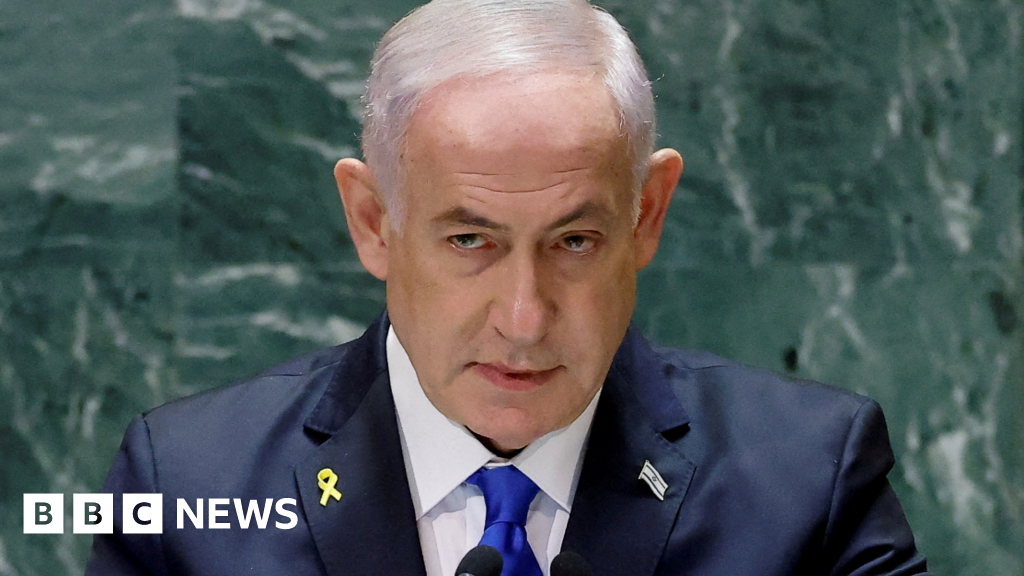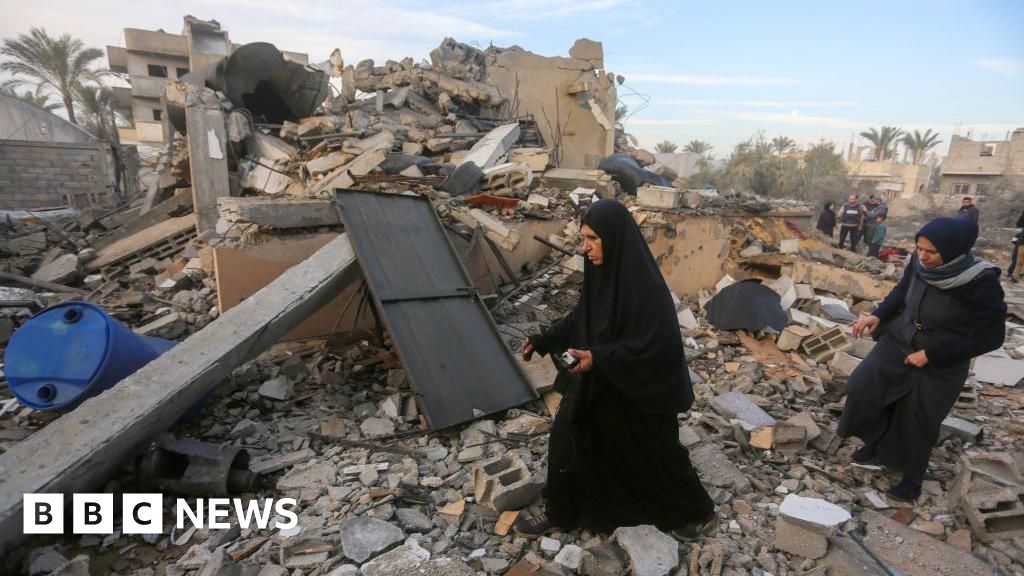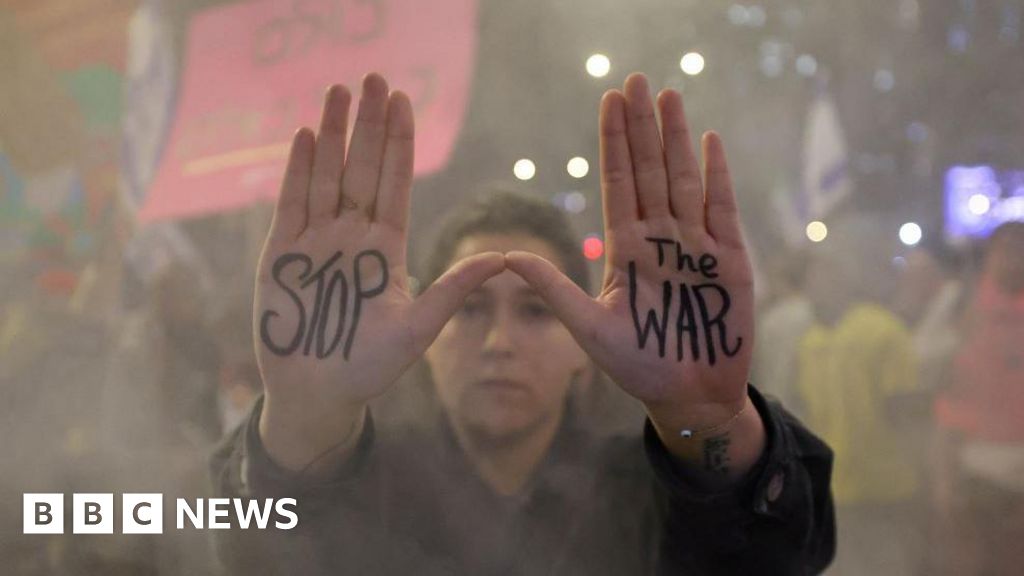ARTICLE AD BOX
Abdulkafi, an English teacher from Aleppo, saw his father for the first time in years on Monday, days after rebels launched a major offensive and took control of the northern Syrian city from government forces.
“He is 85, an old man. He never dreamed he would see me again before he died,” said Abdulkafi, who lives in opposition territory. Until the offensive he had been unable to cross into regime-held Aleppo.
A video of the encounter, seen by the BBC, shows the two men embracing and sobbing with emotion.
Abdulkafi is one of several people inside Aleppo who have spoken to the BBC since the city was captured by the armed rebel group Hayat Tahrir al-Sham (HTS) and allies from forces loyal to President Bashar al-Assad.
They described being treated with respect by HTS fighters and increased supplies of electricity and water - but also spoke of their fears at war returning to Aleppo and distrust that the former al-Qaeda-linked group’s professed moderation would last.
Tens of thousands of people have been displaced by the recent fighting, according to the UN.
Many interviewees requested anonymity for their own safety. Some details of individual accounts could not be verified due to the difficulty of reporting independently from Syria.
Many people in Aleppo are scared of renewed fighting, the locals the BBC spoke to said. Air strikes by the Syrian government and allied Russian forces have already killed dozens, according to the Syrian Observatory for Human Rights, a UK-based monitoring group.
One man told the BBC his main worry was the bombardment that he feared could hit the city at any point. He said he had stopped his family from even going to the corner shop.
“We’re living in complete apprehension,” he said. He added that the air strikes that have hit the city over the past few days reminded him of earlier periods in the war.
Aleppo, most of which had been captured by rebels in the early years of the Syrian civil war, was retaken by Syrian government forces backed by Russia in 2016 after a gruelling siege.
Since then, the city has mostly avoided direct warfare. The Syrian government claims credit for what it says is the ongoing reconstruction of the city, which until the war was Syria’s commercial hub.
But NGOs and independent journalists accuse the government of widespread human rights abuses there, including torture and killings of civilians and non-existent democratic rights.
Abdulkafi and his father's reunion was joyful - but Abdulkafi said some of his relatives were afraid to be seen with him for fear of retribution were regime forces to retake the city once again.
“Nineteen Eighty-Four is applied in Aleppo. Assad’s image is on every building, streets, on every corner. He is controlling their minds,” he said, referring to the George Orwell novel about totalitarianism.
For him, the rebel victory was “a victory for freedom” which he had been waiting for since he left the city in 2016.
Others in Aleppo are more fearful. One woman said people were “confused and scared” following the rebel takeover. She said she hadn't left her house at first, but later went for walks and drives with her family after hearing that civilians were not being harassed by the rebels.
“Everywhere was relatively calm. But everyone looked scared and anxious, you could sense it in their faces and their reactions. No-one looked comfortable.
“People are scared, because we don’t trust anyone or what their reaction might be to what’s happening now.
“We feel let down by everyone. We don’t know what’s going to happen to us.”
HTS was set up under a different name, Jabhat al-Nusra, in 2011 as a direct affiliate of al-Qaeda. It has since split from the group and claims to have moderated its ideology.
George Meneshian, a Greek-Armenian political analyst who is in contact with Armenians in Aleppo, said Christians in the city had not experienced any problems since the HTS takeover.
“On the first day, an HTS fighter knocked on the door of an Armenian neighbour and assured them that they would definitely not harm them,” he told the BBC, adding that his sources were afraid to directly speak to the media due to fear of retribution.
“They said they would respect them and allow them to do whatever they want, as Christians and as Armenians.”
Meneshian said Christians were suspicious of HTS promises, saying minority groups in Syria had previously been persecuted by jihadist groups which at first said they would not harm non-Muslims. He said many had grown used to Assad’s rule, which was authoritarian but at least did not actively persecute Armenians.
“There are precedents for Islamist militias initially not harming anyone, but afterwards committing crimes against minorities. Hopefully this will not be the case.”
A Syrian opposition leader abroad told Reuters that rebels taking control of Aleppo also paves the way for Syrians displaced within the country and up to 600,000 in neighbouring Turkey to eventually return home.
Abdulkafi, who lives in the HTS-controlled city of Al-Dana in Idlib, said that minorities had nothing to fear from the group, which he stressed he disagreed with.
“They are showing much more flexibility, because the highest achievement that HTS can get is acceptance from the world. This doesn’t mean that I like them.”

 1 month ago
10
1 month ago
10








 English (US) ·
English (US) ·